Imagine - there's a house with 80 flats. It has 4 floors and 5 blocks. Each block has 4 flats. User is asked to input flat number and Pascal program is supposed to calculate and output flat number. This must be calculated using some kind of formula. The only tip I have is that I have to use div and mod operations.
This is how the house looks like - 
So far, I've created program, that loops through all 80 flats and after each 16 flats increases block value and after each 4 blocks increases stair.
This is my code:
program project1;
var
i, floors, blocks, flats, flat, block, floor, blockCounter, floorCounter : integer;
begin
floors := 4;
blocks := 5;
flats := 80;
while true do
begin
write('Flat number: ');
read(flat);
block := 1;
floor := 1;
blockCounter := 0;
floorCounter := 0;
for i := 1 to 80 do
begin
blockCounter := blockCounter + 1;
floorCounter := floorCounter + 1;
if (floorCounter = 4) then
begin
floorCounter := 0;
floor := floor + 1;
end;
if (blockCounter > 16) then
begin
block := block + 1;
blockCounter := 0;
floorCounter := 0;
floor := 1;
end;
if (i = flat) then
begin
writeln('Flat nr. ', flat, ' is in ', floor, '. floor and in ', block, '. block!');
end;
end;
end;
end.
Is there anyone who can help me with this?